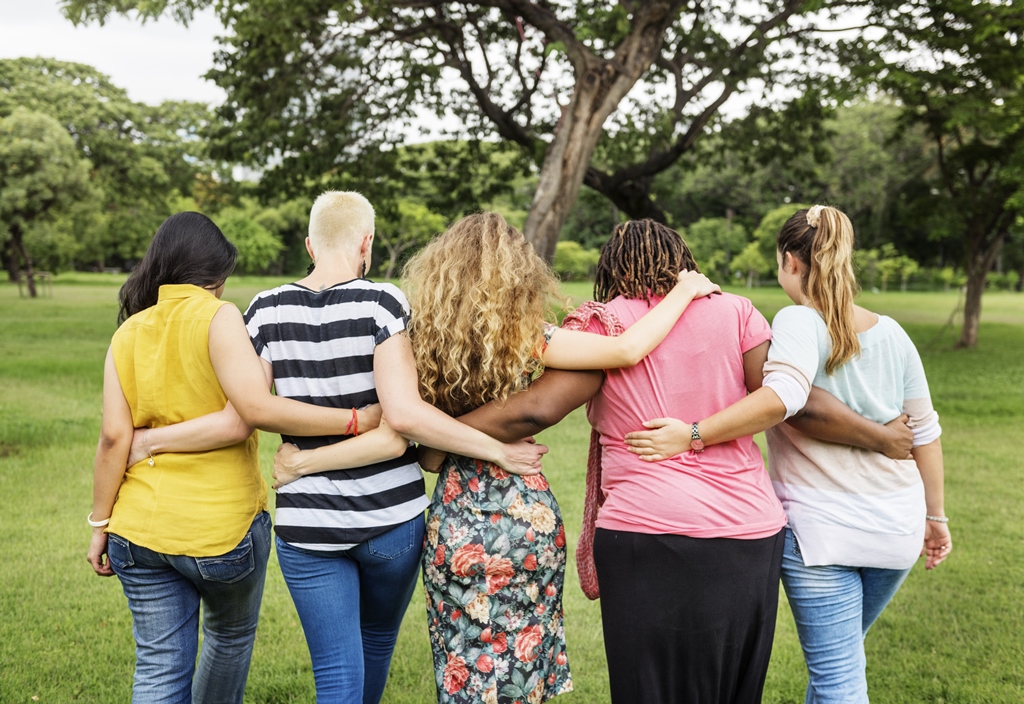
Women's bodies are evaluated frequently and is something women have to deal with daily
Whether we like to admit it or not, women's bodies are evaluated frequently. Coping with this fact is a reality that all women face on a daily basis.
Focusing on a positive body image and practising self-compassion are two coping mechanisms being explored by Faculty of Physical Education and Recreation researchers in an effort to help women reach a level of self-acceptance.
Associate professor Tara-Leigh McHugh says body image is more than just physical appearance and body image, but rather comprises the feelings, attitudes, behaviours, self-interpretation and self-awareness components of the body experience.
To gain a better understanding of the contexts and environments in which a positive body image may be experienced, one of McHugh's graduate students explored the positive body image experiences of women actively involved in pole fitness.
"By listening to the voices of women, we gained a deeper understanding of how this specific fitness environment can facilitate positive body images and body acceptance experiences," explains McHugh. "For example, women shared how the focus on skill development may promote body appreciation, and how the pole fitness environment allowed for women to observe the diversity of body shapes and sizes, which may not align with current ideals."
With positive body image being a relatively new area of study, a consensus on how it should be conceptualized has yet to be formed. McHugh points to a recent research paper (Tylka & Wood-Barcalow, 2015) that identifies six aspects of achieving a positive body image:
- Appreciating the unique beauty and functions of your body
- Accepting your body, including those aspects that don't meet idealized images
- Feeling comfortable, confident and happy with your body
- Emphasizing your body's assets rather than focusing on imperfections
- Having a mindful connection with your body's needs
- Interpreting incoming information about body image in a protective manner, where you internalize positive messages and reject or reframe negative messages
McHugh agrees that these six components should be considered when promoting positive body image. In particular, she feels it's important for women to learn to appreciate and accept the functionality of their bodies, and to have a mindful connection with their bodies.
Mindfulness is a component also applied to the practice of self-compassion.
What is self-compassion?
Five ways to practise positive body image and self-compassion
Mosewich and McHugh say there are five ways to practise positive body image and self-compassion:
- Surround yourself with supportive, positive, like-minded people
- Focus on and embrace your body's abilities and functionalities
- Find positive outlets to keep thoughts and feelings in balance, such as mediation, yoga, exercise classes and journaling, to name a few
- Be kind to yourself and to others, keeping in mind you and everyone else are much more than just your bodies
- Continue to practice healthy coping mechanisms frequently. Check in with yourself to see how you are feeling and ensure you remind yourself of positives to help you through insecurities and struggles
According to assistant professor Amber Mosewich, self-compassion is an approach that is made up of three components (Neff, 2003):
- Self-kindness-the extension of support and nonjudgmental understanding towards yourself.
- Common humanity-recognizing that lack of positive body image and insecurities are not isolating experiences, but something shared by other people as well.
- Mindfulness-acknowledging thoughts of uncertainty and insecurity, and keeping them in check rather than having the thoughts "runaway" and become overbearing.
Through her research and her work with the University of Alberta's Green & Gold Sport System and Golden Bears and Pandas varsity teams, Mosewich encourages student-athletes to practice self-compassion as a coping resource.
"Along with performance issues and stressors, many women athletes also experience body dissatisfaction and often need to manage evaluation-by themselves and others-surrounding their bodies," she said. "Because they are athletes and train a specific way, the perception of what their bodies should look like is often up for discussion.
"Applying the principles of self-compassion is showing promise as a personal resource to help athletes manage emotionally difficult sport experiences."
She adds the principles of both positive body image and self-compassion can be utilized by women from many different walks of life. While the research discussed is being conducted in the sport and recreation domain, the approaches promoted have potential for all women. Placing emphasis on positive body image and self-compassion, women can begin to work their way to self-acceptance.